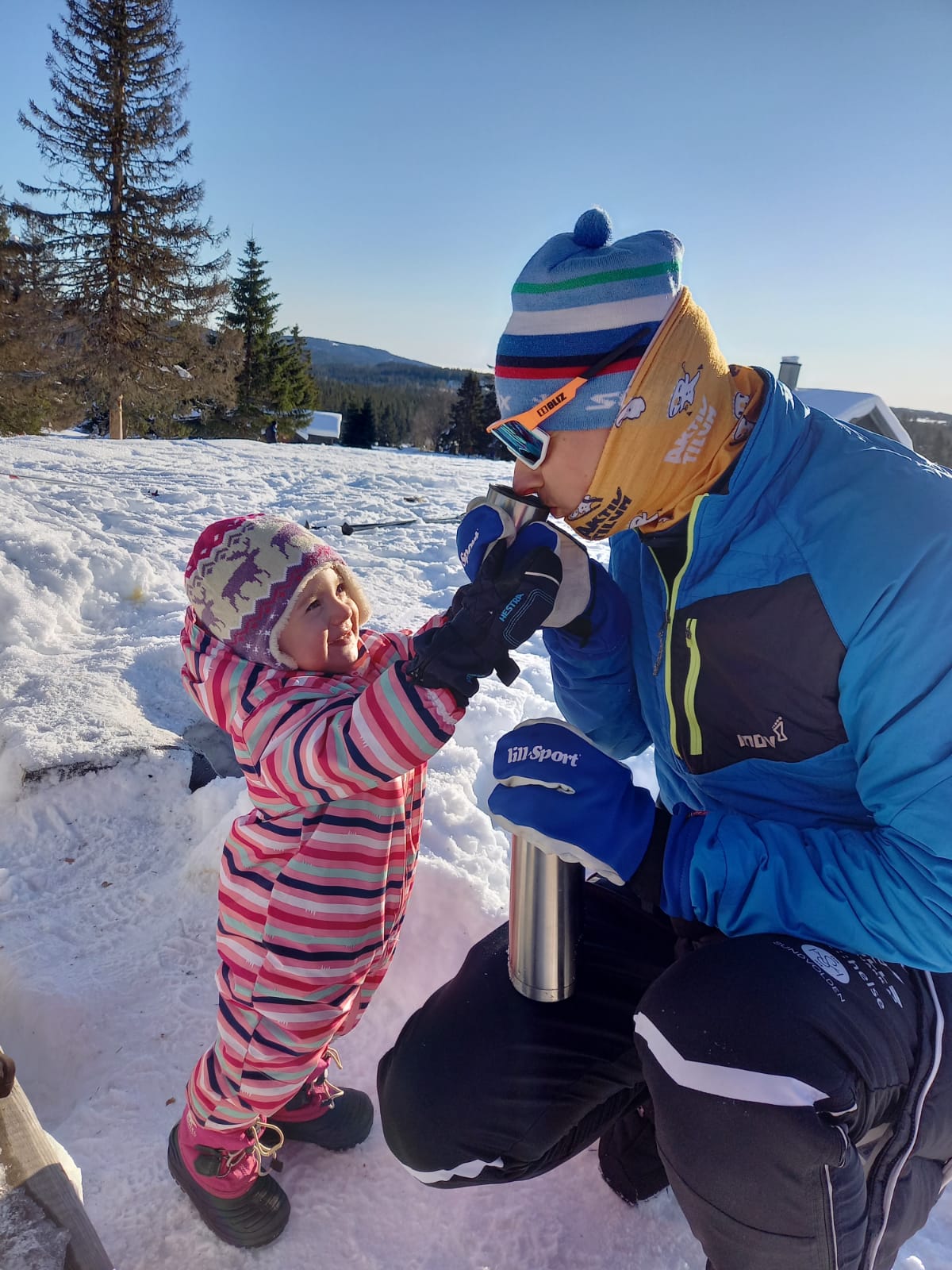Adventures with Children: How to Combine Parenthood and an Active Life

The arrival of a child into the family is a beautiful event, but it inevitably changes established routines. For active and sporty families, this is doubly true. How can one combine parental duties with a love for movement?
Inspiration from the North and Personal Experience
When we moved to Norway, we were amazed to see how families there managed with small children and continued to engage in sporting activities. We realized that it wasn't actually a big problem. After the birth of our children, we tried everything firsthand. For hikes, we got a baby carrier, and for cycling and skiing, we had a bike trailer that we also used for cross-country skiing in winter. In the end, even shorter trips with an overnight stay in a tent never posed a major problem. Thanks to Allemannsretten, which is simply put, the right to camp "anywhere" provided we act respectfully towards nature, other people, and the property of landowners, we enjoyed countless adventures around nearby lakes. You just have to be aware that you might plan for everything to fit together like puzzle pieces, but reality is often different.
One of the great advantages of life with children in Norway was that the surroundings were understanding of family life. My wife Péťa, who professionally focused mainly on athletics in Norway, routinely took the children to training sessions and competitions. It wasn't even a problem to go with the NTG high school, where she worked at the time, to a training camp in Tenerife. The Norwegian societal attitude in this regard is related to the fact that young families don't always have someone nearby to help with childcare. Many people move for work, and it's not uncommon for children's grandparents to live far away. Moreover, the lives of Norwegian seniors are much richer, and they simply want to enjoy their retirement, which they start at 67.
Parents as an Example and the Relationship to Movement
It's crucial to show children that movement is fun and a natural part of life. If we want children to develop a positive relationship with physical activity, we try to lead by example. We cannot treat it as an obligation, but as a joy we want to share, and which children should naturally absorb. This, of course, means that sometimes everything will be bathed in sunshine, and we'll be smiling from ear to ear, and other times we'll encounter at least hunger, cold, or greater fatigue. All of that is part of it.
There's No Bad Weather, Only Bad Clothes
In a sporting environment, this is less of a problem, and coaches, parents, and children are not deterred even by unfavorable weather. Of course, it is always necessary to rationally assess the situation and avoid unnecessary excesses. It must be added that in the Czech Republic, children's participation in organized sports is significantly lower, with only less than half of children participating in sports activities, while in Norway, it's over 80% of children. In the Czech Republic, we also often encounter a lack of understanding. For us, it's normal to get dirty, wet, and sometimes even damage a piece of clothing during an activity. However, the approach of some parents, especially in connection with children's stay in kindergartens, is quite striking. Instead of being grateful that someone is looking after their children and they can "play around" outside, parents get upset that Maruška and Pepíček's clothes are dirty and how it's possible that the children went outside in such bad weather. In Norway, no one discusses this with you; you get a list of things the child must have, and kindergartens are also paid for, although last year there was a significant reduction in fees. On the contrary, I am much more concerned about the insufficient movement of children in Czech nurseries, kindergartens, and schools, where even many relatively knowledgeable people believe that movement, at least in kindergartens, is sufficient. From my point of view, it certainly isn't. At the same time, there is a huge misunderstanding of the parental role in the Czech Republic. A large proportion of parents believe that kindergartens, schools, and clubs will take over the upbringing process for them and do not perceive these educational institutions as a service and an investment in the future for their children. This is more for another debate or article, but children like porcelain dolls and parents who don't want to be laundry women sometimes. This does not correspond to the healthy development of children and is not in synergy with the people who partly contribute to this development.
Conclusion
Children need movement. At the age of 4-6, they need approximately 7 hours of physical activity daily, and this need decreases with age to 3 hours for adolescents. If children are in a state kindergarten or school, they already have a significant deficit compared to their Scandinavian peers, who have approximately 3-4 times more movement, especially outdoors, and acquire many skills through natural, unstructured movement or play with other children. There is nothing left but to try to compensate for this deficiency in some way, and especially on weekends. The simplest and most natural way to support natural movement is walking. If it is organizationally possible, nothing is easier than letting children walk to kindergarten and school. You can travel with children, play sports, and enjoy an active life to the fullest. It just takes a little planning, flexibility, and most importantly, the desire to go for it. You will see that it's worth it!
